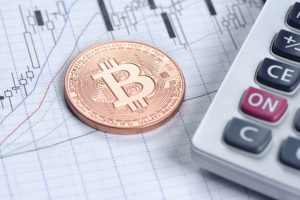UK borrowing halves but inflation takes debt interest to record high

The government borrowed £151.8 billion in the year to March, the third-highest since records began in 1947, though the figure was less than half that borrowed in the first year of the pandemic.
The sharp fall in borrowing was helped by an end to government Covid-19 support schemes and higher tax receipts as restrictions eased and the economy improved. However, inflation at 30-year highs has raised the government’s debt bill and meant that borrowing was well above the £127.8 billion forecast by the Office for Budget Responsibility (OBR) last month.
Debt interest payments rose by £30.5 billion to a record £69.9 billion, offsetting a £50.3 billion drop in government spending to £893.3 billion over the year. Tax receipts rose by £94.3 billion to £619.9 billion, lifting total government receipts to £830 billion, a rise of £105.3 billion.
Rishi Sunak, who is under pressure to give new help to households and businesses hit by the biggest squeeze on households since the 1950s, said he was committed to helping people face their immediate cost of living pressures but still wanted to tackle debts of more than £2 trillion.
He said: “Public debt is at the highest levels since the 1960s and rising inflation is pushing up our debt interest costs, which mean we must manage public finances sustainably to avoid saddling future generations with further debt.”
About half a trillion pounds worth of government bonds are linked to the retail prices index (RPI) measure of inflation. Martin Beck, chief economic adviser to the EY Item Club, said that he expected RPI inflation to exceed 10 per cent by the end of April and stay near that level for the next few months.
“This will push up debt interest spending further,” he said. “There will also be upward pressure on borrowing from the cost of tax cuts and government support for households with energy and fuel bills.”
A record surge in fuel prices pushed CPI inflation to 7 per cent last month as consumers felt the impact of the war in Ukraine on living costs. The squeeze on the cost of living intensified this month, when tax rises came into force and the energy price cap rose by 54 per cent, or almost £700 for the average household. The OBR expects inflation to rise to a 40-year-high in October, when energy bills are reviewed.
Business BriefingIn-depth analysis and comment on the latest financial and economic news.One-click sign up.
Bethany Beckett, UK Economist at Capital Economics, said that Sunak can expect little help from the public finances as growth slows and inflation and interest rates rise. The Bank of England has raised rates three times from a low of 0.1 per cent in December to 0.75 per cent in March in an attempt to bring inflation back to its 2 per cent target. It is expected to raise rates again next month.
“The chancellor’s headroom against his main fiscal mandate — for the underlying debt ratio to be falling in three years’ time — is on a knife-edge,” Beckett said.
Samuel Tombs, chief UK economist at Pantheon Macroeconomics, predicted that the “political pressure to support the economy” will increase as the 2024 general election nears. He forecast public borrowing in the current financial year of about £110 billion and £70 billion in the next, which is above the OBR’s forecast of £99.1 billion and £50.2 billion.




